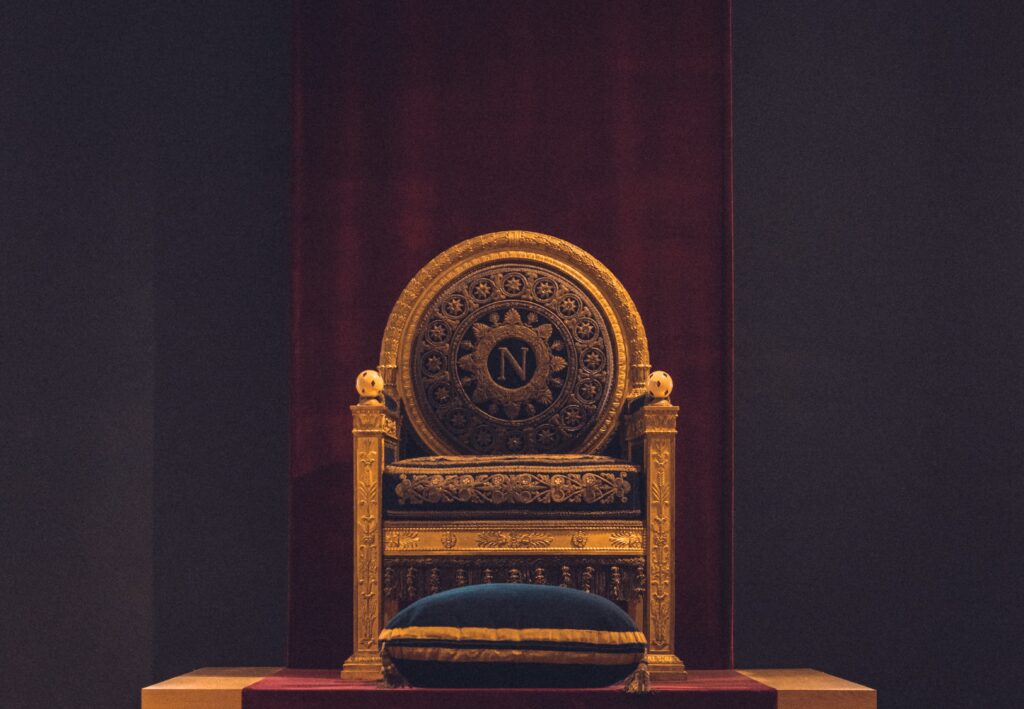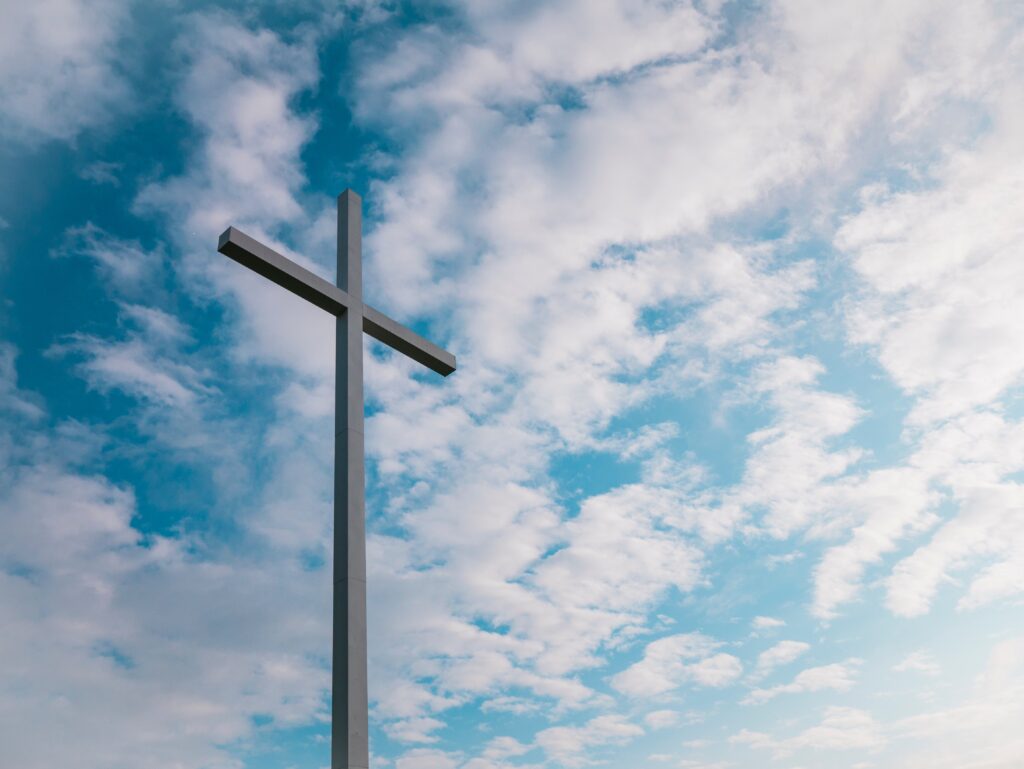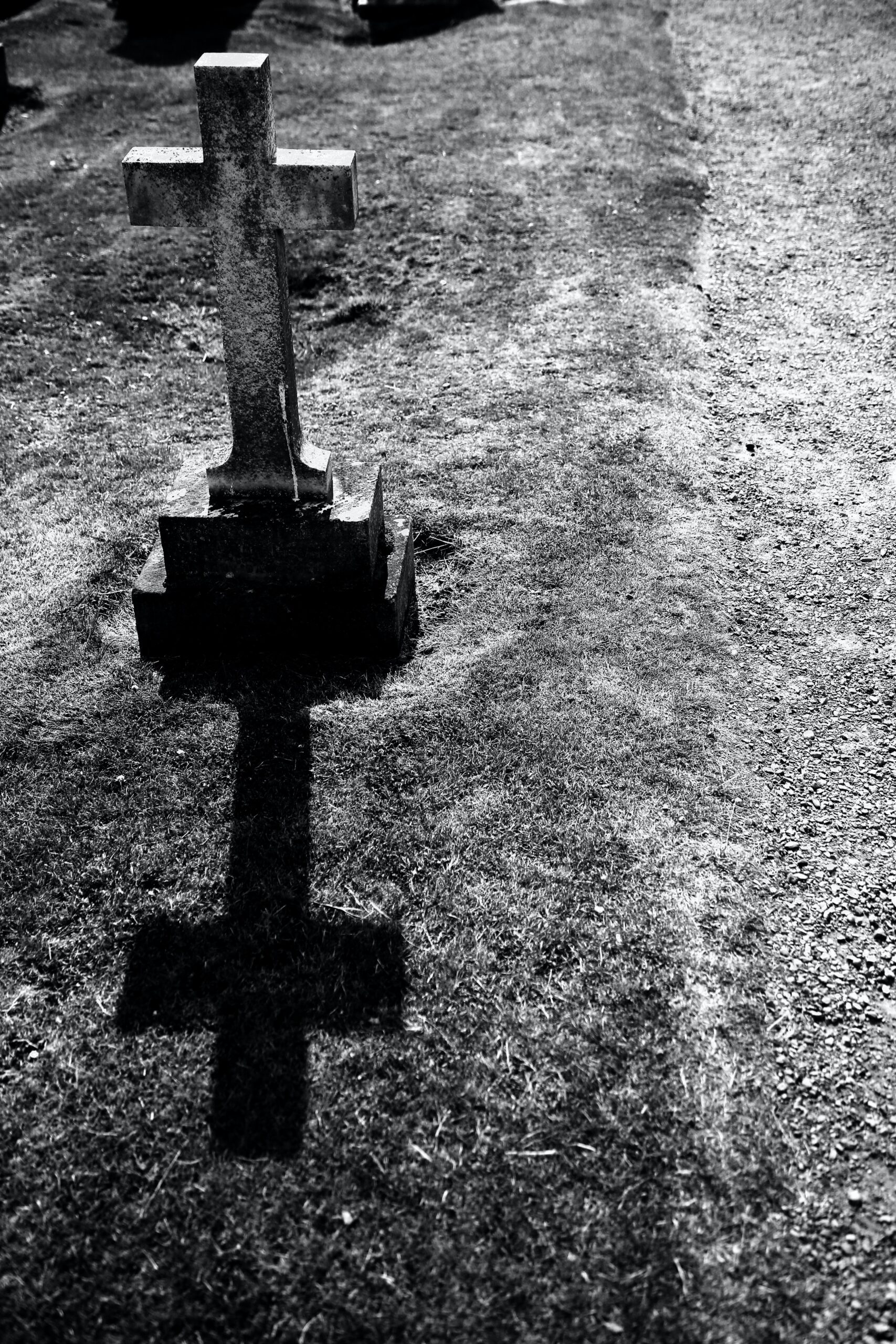The New Creation Has Dawned
The expectation of the second coming of Christ is a unifying factor in Christianity. Though individuals and denominations may disagree about the specifics surrounding that coming, there is almost a universal belief and expectation that Christ will come again. We all confess in the words of the Nicene creed that “he shall come again, with glory, to judge the living and the dead; whose kingdom shall have no end.”[1]
However, as Peter experienced, scoffers are always asking “where is this coming he promised?” (2 Peter 3:4) and there is the temptation to grow weary. Even though we still confess his coming, the expectation and anticipation do not play into how we live our lives; in essence, we become lethargic.
This was one of the problems that the Hebrew believers faced. They were willing to suffer persecution for the faith in expectation of the coming of Christ to reward them. However, that coming seemed to take forever and they were losing their confidence. The author of the letter to the Hebrews had to encourage them that “in just a little while, he who is coming will come and will not delay” (Hebrews 10:37), an expectation that is rooted in God’s truthfulness and faithfulness to his promises (6:13-20).
I believe that one way to encourage our hearts about the second coming of Christ and the new creation that will be established at his coming is to reflect on the fact that the new creation, the kingdom of God, has already dawned in Christ’s first coming. In fact, everything we look forward to in the second coming has already dawned.
That knowledge should encourage our hearts that the God who has made a downpayment on his promises will not fail to consummate them. The dawning of the new creation with all its blessings is a guarantee of what’s to come.

The promise of the new creation
After years of Israel’s disobedience, God finally gave them over to their enemies, the northern kingdom to the Assyrians and the southern kingdom to the Babylonians. In the Babylonian invasion, the temple of God itself was razed down. The people of God now became a captive people, under the control of pagans, singing the song of Zion in a foreign land (Psalms 137:4).
However, because of his promises to Abraham, Isaac, and Jacob to give them descendants through whom he will bless the world, God promised to restore his people from exile (Jeremiah 30). This restoration would be a comprehensive one that goes beyond political emancipation and national sovereignty.
For example, God would unite Israel and Judah (north and south) and establish a new covenant with the restored people (Jeremiah 31:31-34). This new covenant will include a regeneration of heart that would cause the people to leave their disobedient ways and follow God’s laws and decrees (Ezekiel 36:24-32; 11:17-21).
Also, the presence of the Spirit will be pervasive (Isaiah 32:15, 44:3, Ezekiel 39:29, Joel 2:29-32), as he would be the means of renewed Israel’s regeneration.
Furthermore, God’s promise to bless the nation through Abraham’s descendants would be finally fulfilled as nations of the world stream to Israel’s God to worship and serve him (Isa 2:2-4; 25:6-10; Micah 4:1-3; Zech 8:23). Now, Jews and Gentiles will serve God under one kingdom that would be ruled by a Davidic King (Isaiah 42:1-6; 9:6-7; 61:1-11).
Unlike the kingdoms of the earth (Isaiah 13-23) and even Israel (Isaiah 1) that were characterised by social injustice and idolatry of varying forms, this new kingdom will serve only God (Isaiah 60:12), justice will flow like waters (Isaiah 42:1, 4, 6-7), and there will be a manifestation of God’s power in deliverance, freedom, and healing (Isaiah 61).
This new kingdom is also described as the new heavens and the new earth (Isaiah 65:17; 66:22), where the effects of sin will be done away with and righteousness and peace will reign supreme (Isaiah 11:6-9, 65:17-25; 32:17-18 Ezekiel 34:25).
Though Israel physically returned from exile, they still had to live in anticipation of all of these promises. They had physical restoration from exile but the spiritual restoration was going to await the coming of the Davidic King/righteous Branch/servant of the Lord/shepherd/Son of God (Jeremiah 23:1-6, Isaiah 42:1-6, Psalms 2:1-12) who was going to bring about this restoration and usher in the new creation.
Jesus, the Christ
When the angel promised Mary a child, he described him in these words: “He will be great and will be called the Son of the Most High. The Lord God will give him the throne of his father David, and he will reign over Jacob’s descendants forever; his kingdom will never end” (Luke 1:32-33). Zechariah, the priest, also acknowledged that Jesus was the fulfilment of Israel’s hopes (67-79).
Jesus is the King, Lord, and son of God of Psalms 2 (Acts 2:30-34, 4:25, Luke 1:35, Mathew 3:16-17). He is the true shepherd that Israel was awaiting (John 10:1-18), the servant of the Lord that will bring light to the Gentiles (Luke 2:32, Acts 26:23) and give his life for the salvation of others (Acts 8:32-35, Luke 22:37), and the inaugurator of the new covenant (Luke 22:20).
He is the one whom God had appointed to bring about the eschatological promises that were pronounced by Israel’s prophets.
The kingdom is already here
In his ministry, Jesus went about proclaiming that the kingdom of God was already near (Mathew 3:2). When the Pharisees asked when that kingdom would come, he told them that the kingdom of God was already in their midst (Luke 17:21). The kingdom of God was not an entirely future reality that will come only at the consummation of all things; in Christ, the kingdom was already present.
How so?
First, in Christ’s ministry, we see the manifestation of the power of God that the OT prophets expect would characterise the kingdom of God.
As we saw earlier, there would be a manifestation of the power of God that results in healing, release, deliverance, the preaching of the gospel to the poor, among others (Isaiah 42 and 61). In Luke 4, after Jesus had read from Isaiah 61 in the temple, he declared, to the amazement of all, that “Today this scripture is fulfilled in your hearing” (Luke 4:21).
We also see this in Matthew 11. When John the Baptist was wondering if Jesus was the expected Messiah or not, Jesus told John’s disciples to go back and report that “the blind receive sight, the lame walk, those who have leprosy are cleansed, the deaf hear, the dead are raised, and the good news is proclaimed to the poor” (verse 5).
Commenting on this narrative, Richard Hays writes “Drawing upon the imagery of Psalm 146:5-9 and Isaiah 61:1 (see also Isa 35:5-6), this visionary passage imagines an eschatological age in which God will act to set all things right by bringing miraculous healing and even resurrection of the dead.” Matthew has “attributed these divine deeds to Jesus, and he has framed them not as future hopes but as actions already performed in recent time.”[2]
Second, in the ministry of Jesus and the preaching of the apostles, we see the Gentiles coming to faith in Israel’s God and his Messiah, Jesus Christ. Jesus was already breaking down the barriers between Jews and Samaritans (John 4) as well as between Jews and Gentiles (Mark 7:26ff). This breaking of barriers would be more manifested in the church after Jesus’ death and resurrection (Acts 10-11, Galatians 2:11-21). Through the gospel of Jesus Christ proclaimed by his apostles, “the Gentiles are heirs together with Israel, members together of one body, and sharers together in the promise of Christ Jesus” (Ephesians 3:6).
Third, Jesus is the king of the Kingdom that was promised in the Old Testament. In his triumphant entry to Jerusalem, he affirmed that he was truly the Son of David, the king of the Jews (Mathew 21:9). While on trial, he also affirmed that he was indeed a king with a kingdom, even though his kingdom is not of the world (John 18:36).
When he ascended to heaven, God placed everything under his feet as the sovereign ruler over all creation. He is “far above all rule and authority, power and dominion, and every name that is invoked, not only in the present age but also in the one to come,” the “head over everything” (Ephesians 1:20-23). He is the King of kings and the Lord of lords (Rev 19:13,16) who holds all authority in heaven and on earth (Matthew 24:18).
Fourth, the OT promises that when the kingdom of God arrives, the Spirit will be poured out (Isaiah 32:15, 44:3, Ezekiel 39:29, Joel 2:29-32) was fulfilled at Pentecost (Acts 2). Christ is now present in the world through his Spirit, the Spirit of regeneration (John 3), transformation, and the renewal of creation.
In essence, in Jesus’s ministry, death, resurrection, ascension, and session at God’s right hand, the kingdom of God that Israel was expecting had already dawned.

The kingdom of God and the new creation
As said above, the kingdom of God anticipated by Israel’s prophets was also called the new heavens and the new earth (the new creation).
According to Paul, the union that happens between Christ and the believer is evidence that the new creation has already dawned. “Therefore, if anyone is in Christ, the new creation has come: the old has gone, the new is here” (2 Corinthians 5:17). Now, the difference between the circumcised and the uncircumcised does not matter; what counts is the new creation (Galatians 6:15).
The renewing of everything that is expected at the end of the age has already begun in the regeneration of believers and the union (and communion) they enjoy with Christ.
Similarly, the resurrection from the dead that is expected at the end of the age (Daniel 12:2’ John 11:24) has now dawned in the resurrection of Jesus, the firstborn from among the dead (Colossians 1:18, Revelation 1:5). As Paul puts it, “But Christ has indeed been raised from the dead, the firstfruits of those who have fallen asleep” (1 Corinthians 15:20).
“Jesus’s resurrection meant the embryonic fulfillment of the prophetic hopes for new creation,” said Michael Bird. “Jesus’ resurrection signaled the arrival of the new eschatological epoch. The God who created all that existed had now started to transform all that exists into a new creation where death and suffering can no longer be experienced.”[3]
Also, the presence of the Spirit is a guarantee that the inheritance promised to the saints will come (Ephesians 1:14, 2 Corinthians 1:22, 5:5). Said differently, the inheritance associated with the new creation has already dawned in the presence of the Spirit. In essence, the presence of the Spirit is the presence of the new creation. Explaining the connection between the Spirit and the new creation, Bird says “The gift of the Spirit is the eschatological gift of the risen Lord, who continues the work of new creation in the hearts of his people.” [4] The Spirit of regeneration and renewal is evidence that the new creation is here.
Furthermore, we should notice that many of the glories of the new creation we expect are already present due to the work of Christ and the Spirit. The “not-guilty” verdict we expect in the final judgement (2 Corinthians 5:10) is already present in the fact that we are already justified by faith (Romans 5:16-18); the future adoption we await (Romans 8:23) is already present in the fact that we are already children of God (Galatians 3:26); the future resurrection of the body we expect is already present in Christ’s resurrection (1 Corinthians 15:20-28); the future presence of God in the new heavens and new earth (Rev 21:3) is already present in the Spirit who now dwells in and with us (John 14:17) and by whom we gain access to the Father (Ephesians 2:18); the defeat of Satan and all his hosts that we expect in the future (Revelation 20:10), is now present in the fact that Christ has cast Satan down (John 12:31, Revelation 12:9) and has bound him so he can’t deceive the nations as he did before Christ (Revelation 20:1-3); the ultimate defeat of sin (Rev 21:8) and suffering (Rev 21:4) we anticipate is already present in the Spirit’s power to give us victory over sin (Romans 6) and in the work of God through his church to overcome suffering and diseases (John 14:12; 1 Corinthians 12:8-9; Hebrews 6:5).
Consequently, the last days (when God’s eschatological promises will be realised) are no longer entirely future. For Peter, Pentecost was already the last days (Acts 2:17). And for the author of Hebrews, the last days began with the revelation of Jesus (Hebrews 1:2).

The coming consummation and the present actualisation
Of course, we still look forward to the consummation of the kingdom and the new creation. Many kingdoms of the world are still rebelling against Christ; the devil, though defeated, is still active; we still sin, suffer, and die; and though we commune with God, we have not seen him face to face. Therefore, we still look forward to the consummated defeat of sin, Satan, suffering, and death and the consummated presence of the triune God in fellowship with us. We also look forward to the resurrection of the dead, acquittal in the judgement, among others.
However, the good news is that we are not looking forward to strange and unusual (and, therefore, doubtful) things. The things we look forward to are already here in some form, we are only waiting for the glorious consummation of what we already enjoy, a consummation that will deepen, intensify, and transform our enjoyment of those new creation realities.
So, anytime we are tempted to get weary waiting for the coming of Christ or to doubt the veracity of his coming, we should let the reality of the presence of the new creation encourage us to wait for its consummation.
Will there really be a resurrection from the dead? Why not? Christ has already risen and we are united with him in that resurrection. Will sin and suffering be really defeated? Why not? The Spirit is already defeating sin in us and alleviating suffering in the world? Can we really expect to see God dwell amongst us? Why not? His Spirit is already abiding in and with us. Will the devil be really defeated forever? Why not? Christ has already cast him down and he has not been able to prevent the spread of the gospel to the ends of the earth.
The truth of the presence of the kingdom of God and the new creation in the here and now should be a bulwark against lethargy and unbelief. It should also ignite our anticipation for the second coming of Christ when what we enjoy in some form now will be fully consummated.
Joy has dawned upon the world,
Promised from creation:
God’s salvation now unfurled,
Hope for every nation.
Not with fanfares from above,
Not with scenes of glory.
But a humble gift of love:
Jesus born of Mary.
Sounds of wonder fill the sky
With the songs of angels,
As the mighty Prince of Life
Shelters in a stable.
Hands that set each star in place,
Shaped the earth in darkness,
Cling now to a mother’s breast,
Vulnerable and helpless.
Shepherds bow before the Lamb,
Gazing at the glory;
Gifts of men from distant lands
Prophesy the story.
Gold, a King is born today,
Incense, God is with us,
Myrrh, His death will make a way,
And by His blood He’ll win us.
Son of Adam, Son of heaven,
Given as a ransom,
Reconciling God and man,
Christ our mighty Champion.
What a Saviour, what a Friend,
What a glorious mystery:
Once a babe in Bethlehem,
Now the Lord of history.[5]
[1] Conglomo, 2022. Creeds and Confessions. Mobile App. Version 2.2.45. Available from: https://play.google.com/store/apps/details?id=nz.co.conglomo.confessions&hl=en_US&gl=US. Accessed 17 February 2022.
[2] Richard Hays, Echoes of Scriptures in the Gospels (Texas: Baylor University Press, 2016), 184-185, PDF.
[3] Michael Bird, Evangelical Theology (Grand Rapids: Zondervan Publishing, 2013), 227, PDF.
[4] Ibid, 228.
[5] Stuart Townsend and Keith Getty (2014). Joy Has Dawned Upon the World(Lyrics). Retrieved from: Joy has dawned upon the world – Stuart Townend


